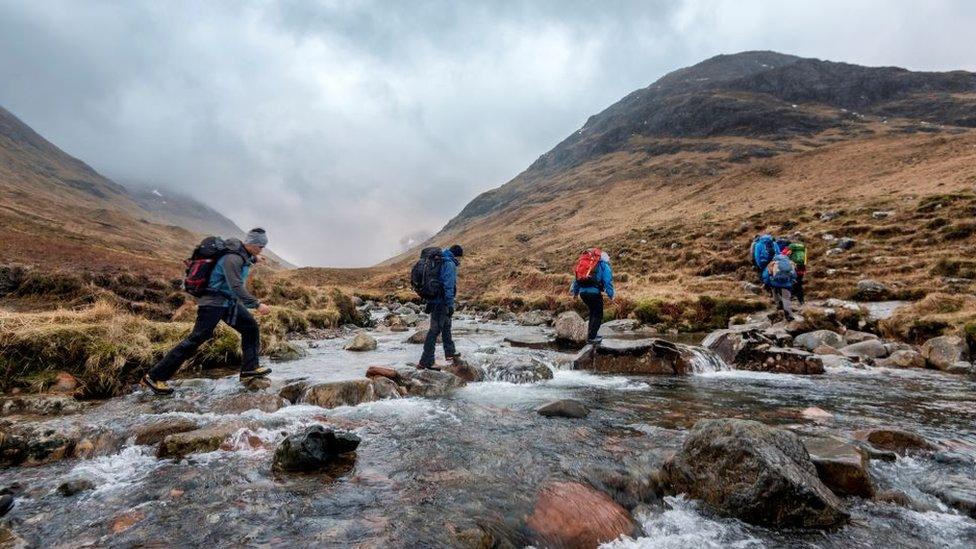Safety experts to study cause of mountain accidents
- Published

Safety experts hope to get a better understanding of what causes accidents in hills and mountains, and the types of injuries people sustain.
Information has been sought from rescuers, and also people who have been hurt.
Mountaineering Scotland and the Mountain Safety Group, whose members include Police Scotland and rescue teams, have launched the survey, external.
The groups said there was a lack of information on what caused incidents.
The survey is open to anyone in the UK and Ireland.
Ross Cadie, senior mountain safety adviser at Mountaineering Scotland, said: "Getting a better insight into the drivers behind mountain accidents will be a game changer.
"Being able to recognise and then understand any patterns of behaviour will help us tailor our safety messaging and deliver better courses that will help to prevent accidents and save lives in the mountains."
The groups leading the survey said mountain rescue teams and the police collected information about the number and nature of rescues they attend.
But they said this only gave details of what happened after an incident, and not what caused it, or what the person might have learned from it.
Insp Matt Smith, of Police Scotland said: "Preventative work to reduce accidents is a priority for us.
Learning exactly why they take place will help us focus our work to reduce demand on volunteer mountain rescue teams and ultimately, help keep people safe."
Busiest year
In May this year, Scottish Mountain Rescue reported its second busiest year on record in 2022 for call-outs and incidents.
Its teams were called out 843 times to 636 incidents. These involved 21 deaths, with 11 of them mountaineering accidents.
The organisation's members include 25 civilian rescue teams - including Braemar, Galloway and Skye MRTs - three Police Scotland teams and an RAF team.
Scottish Mountain Rescue's busiest year on record was 2021 when there were 951 separate call-outs to 660 incidents.
According to the organisation's latest annual report, summer continued to be the busiest season.
A total of 740 people were assisted in 2022, with 90 having been injured. Fractures made up 45% of the injuries.
In terms of mountain rescues, most - almost 320 - involved hillwalking with 69% of these accidents occurring in summer.
The 26 to 35-year-old age group was the most frequently rescued. Scottish Mountain Rescue said this age group was the most likely to be taking part in outdoor activities.
The statistics also record gender for some rescues - 202 were male, 134 female and 93 were described as unspecified.